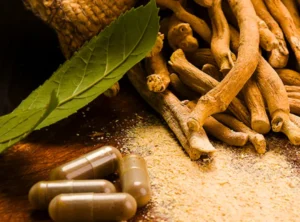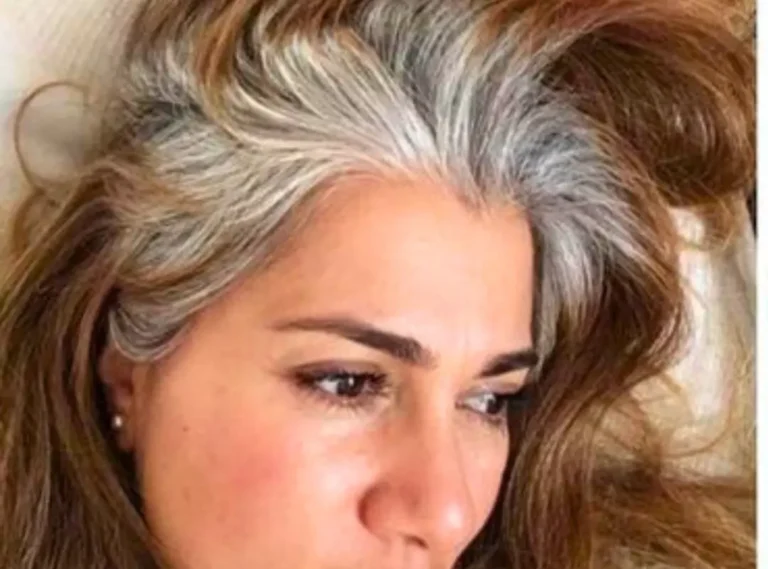
Menopause is a significant life change that can affect various aspects of a woman’s life, including her beauty and overall well-being. As menopausal symptoms start to appear, many women experience changes in their hair, including the onset of white hair. However, with the right care and attention, it’s possible to maintain silky, healthy-looking locks.
Grey Hair During Menopause: How to Keep It Elegant, Hydrated, and Stylish
Embracing grey hair can be an act of freedom, authenticity and timeless elegance. During menopause, this choice takes on even deeper meaning, as this stage marks a transition not only in hormones, but in identity. Grey strands don’t have to mean letting yourself go with the right care, they can become a signature of style, confidence and sophistication.
This article will explore the effects of menopause on beauty, with a special focus on hair care. We will discuss tips on how to keep your hair looking its best.
Key Takeaways
- Understand how menopause affects your hair and your beauty.
Discover tips for keeping your hair silky and healthy-looking.
Learn about shampoos and creams for gray hair. Talk to professionals to get more accurate information according to each woman’s hair type.
Explore modern haircuts that can enhance your beauty during menopause.
Discover how to improve your overall well-being during this life change.
Understanding Menopause and Its Effects on Beauty
Menopause is a significant life change that affects not just overall health but also beauty. As women navigate this transition, they experience a range of physical changes that can impact their beauty and well-being.
Why Does Hair Change During Menopause?
However, with consistent care and a few smart choices, your hair can remain healthy, luminous and full of personality.
Common Hair Concerns During Menopause
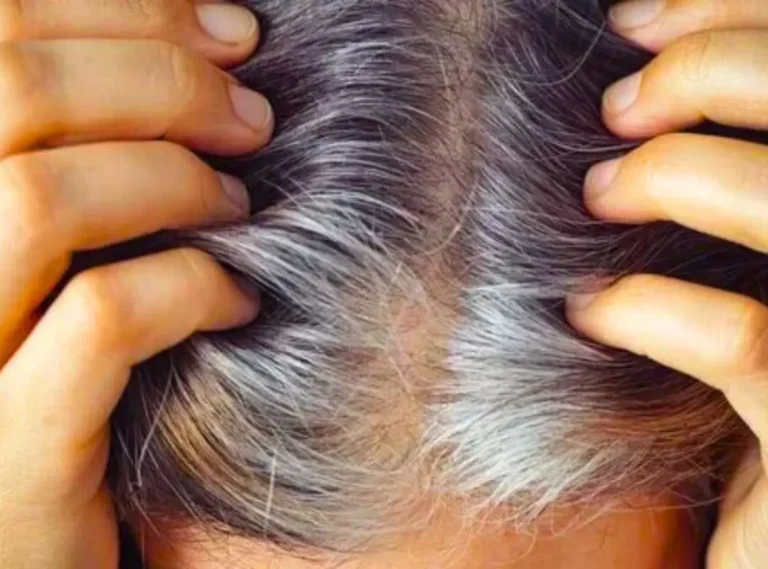
Women going through menopause often experience several hair-related concerns. Common issues include dryness, brittleness, and loss of shine. Proper hydration is essential to mitigate these effects, especially for white hair, which can be particularly prone to dryness. Using the right hair care products and techniques can help maintain healthy and beautiful hair during this phase.
Hydration Is Essential
Grey hair contains less melanin — and with that, less natural protection against external aggressors like pollution, sun exposure and heat tools. That’s why deep hydration and nourishment are key.
Practical tips:
Use hydrating masks rich in natural oils like argan, jojoba or coconut once or twice a week.
Apply leave-in conditioners or creams with thermal and UV protection.
Choose sulphate-free shampoos, which cleanse without stripping moisture.
The Beauty Journey of White Hair for Menopausal Women
White hair, often associated with aging, can become a symbol of wisdom and beauty during menopause. This natural transition can be embraced as a new chapter in a woman’s life, bringing with it a sense of liberation and confidence.
Combatting Yellow Tones: Use the Right Products
One of the most common concerns with grey hair is yellowing, which can be caused by oxidation from sun exposure, pollution, heat, or even tap water. To maintain a fresh, silvery tone, you’ll need tone-correcting products.
What to use:
Purple or violet shampoo once a week to neutralise brassy tones.
Masks with silver or blue pigments to restore natural brightness.
Embracing Your Natural Transition
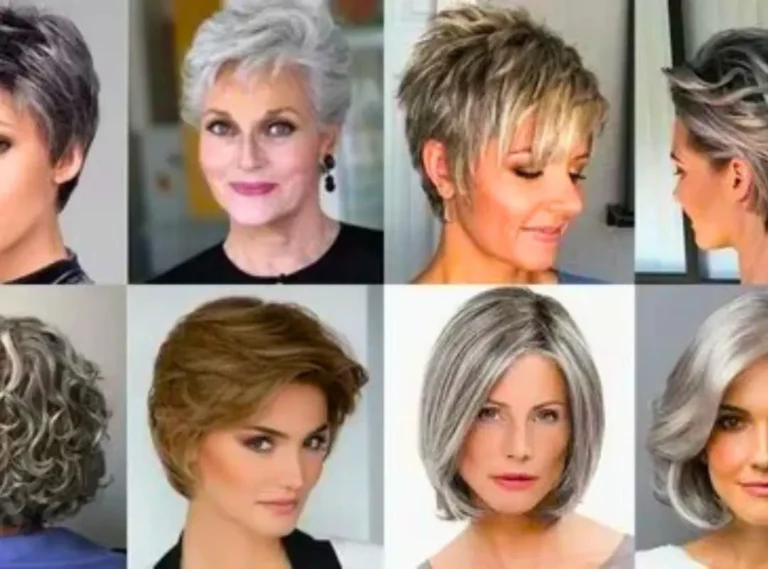
Embracing white hair is about more than just accepting a physical change; it’s about embracing a new stage of life. Women can find empowerment in letting go of the need to dye their hair and instead, focus on its health and beauty in its natural state.
Style Is an Attitude: Embrace the Grey with Pride
Grey hair doesn’t age you — what ages is neglecting yourself. Choosing to embrace your natural colour can be a bold and empowering step. When well cared for, grey hair becomes a striking and elegant feature.
Pair your silver strands with glowy make-up, bold or minimalist earrings, bright or neutral lipsticks — whatever expresses who you are today. The key lies in balancing authenticity, self-care and confidence.
By choosing to embrace their white hair, women can experience a sense of freedom from the regular maintenance that comes with dyeing.
Psychological Benefits of Accepting Change
Accepting the transition to white hair can have significant psychological benefits. It can lead to a more positive self-image and a greater sense of self-acceptance.
Women who embrace their white hair often report feeling more confident and comfortable in their own skin.
Inspiring White-Haired Role Models
There are many inspiring women who have embraced their white hair and become role models for others. Celebrities like Helen Mirren and Judi Dench have shown that white hair can be a sign of elegance and sophistication.
These women, along with many others, are redefining what it means to age beautifully, showing that white hair can be a crown jewel in a woman’s beauty journey.
Maintaining Silky and Healthy Hair During Menopause
Scalp Health and Hair Growth During Menopause
Your scalp deserves attention too, especially during menopause when it may become drier or more sensitive. A healthy scalp supports strong, resilient hair.
Useful tips:
Massage the scalp with oils like castor or rosemary, known to stimulate circulation.
Use natural scalp tonics to strengthen hair follicles.
Maintain a balanced diet rich in protein, iron, zinc and biotin to support hair health from the inside out.
Understanding Your Hair's Changing Needs
During menopause, the reduction in estrogen can lead to hair losing its natural moisture and shine. It’s essential to recognize that your hair’s needs are changing and adjust your care routine accordingly. Using the right products, such as moisturizing shampoos, can help counteract these effects.
What to use:
Purple or violet shampoo once a week to neutralise brassy tones.
Masks with silver or blue pigments to restore natural brightness.
Essential Hydration Techniques for White Hair
Hydration is key to maintaining healthy and silky hair, especially for white hair which tends to be drier. Techniques such as using deep conditioning treatments and leave-in hydrating products can significantly improve hair’s texture. Incorporating products with ingredients known for their hydrating properties, like coconut oil and shea butter, can provide the necessary moisture.
For white hair, or “white hair,” white hair hydration is crucial. Using a hydrating mask once or twice a week can help lock in moisture.
Weekly Hair Care Routine for Maximum Silkiness
A consistent hair care routine is vital for maintaining silky hair during menopause. Start with a gentle, sulfate-free shampoo suitable for your hair type. Follow up with a nourishing conditioner, focusing on the ends where dryness tends to be more pronounced.
A weekly routine could include:
- A hydrating mask to lock in moisture.
- A gentle scalp massage to improve blood circulation.
- Using a wide-tooth comb to minimize breakage.
By understanding your hair’s changing needs and incorporating the right hydration techniques and care routine, you can maintain silky and healthy hair throughout menopause.
Best Products and Treatments for Menopausal Hair
Menopause brings significant changes to your hair, requiring specialized care. As your hair goes through several changes, it is essential to adapt your hair care routine to keep it healthy and beautiful. That is why it is essential to have good knowledge to do it at home or ask your hairdresser for advice.
Specialized Shampoos for White and Aging Hair
Using the right shampoo is crucial during menopause. Look for shampoos formulated for graying or aging hair, as they often contain ingredients that help lighten and nourish the strands. Brands offer shampoos and creams that cater to the needs of menopausal hair, moisturizing and reducing yellowing.
Nourishing Creams and Masks for Deep Hydration
Creams and masks play a vital role in hydrating menopausal hair. Deep conditioning treatments once or twice a week can significantly improve hair’s texture and manageability. Products rich in argan oil, coconut oil, or shea butter are particularly beneficial, providing intense hydration and nourishment.
Leave-in Treatments for Daily Protection
Leave-in treatments are essential for daily hair protection, especially for menopausal hair that may be more prone to dryness and breakage. These products help to lock in moisture, reduce frizz, and add shine. Look for leave-in creams or serums that contain antioxidants and natural oils for optimal protection.
In addition to these products, considering a modern haircut can also enhance the appearance of menopausal hair. Cortes de cabelos modernos (modern haircuts) can help to frame the face, add volume, and update one’s style, making it easier to embrace this new phase of life.
Conclusion: Embracing Your New Beauty with Confidence
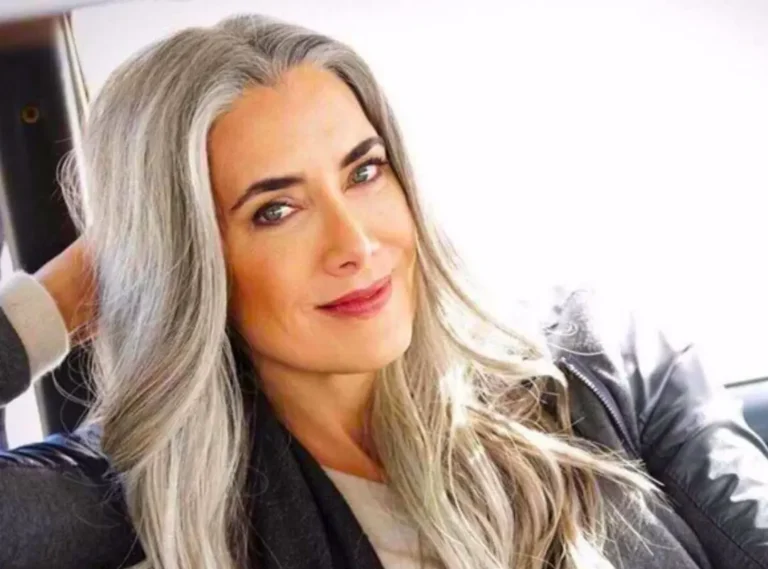
Menopause is a significant life transition that brings about various physical changes, including the onset of white hair. However, with the right mindset and care, a menopausal woman can look and feel her best.
By understanding the effects of menopause on beauty and embracing the natural transition to white hair, women can unlock a new level of confidence. This journey involves adopting a suitable hair care routine, using nourishing products, and finding inspiration in role models who have embraced their natural beauty.
With a little care and attention, white hair can be a stunning aspect of a woman’s beauty during menopause. By focusing on hydration, using the right products, and protecting their hair, menopausal women can enjoy healthy, silky locks that enhance their overall beauty.
Ultimately, menopause is a time to celebrate life’s journey and the beauty that comes with it. By embracing their new beauty with confidence, women can navigate this transition with poise and self-assurance.
FAQ
How does menopause affect hair?
Menopause can cause hormonal changes that lead to dryness, brittleness, and loss of shine in hair. Understanding these changes is key to maintaining healthy and silky hair.
What are the best shampoos for white hair during menopause?
Specialized shampoos formulated for white or aging hair are recommended. These shampoos are designed to provide the necessary hydration and nourishment.
How can I keep my white hair hydrated?
Essential hydration techniques include using nourishing creams and masks, as well as leave-in treatments. A weekly hair care routine that includes deep hydration can help maintain silky hair.
Are there any specific hair care products recommended for menopausal hair?
Yes, products that provide hydration and nourishment are recommended. This includes specialized shampoos, nourishing creams and masks, and leave-in treatments.
Can the right haircut enhance the beauty of white hair?
Absolutely, modern haircuts can greatly enhance the beauty of white hair. Consulting with a professional stylist can help determine the most flattering haircut.
How often should I use a hair mask during menopause?
Using a hair mask once or twice a week can provide deep hydration and help maintain the health and silkiness of your hair.
What are some inspiring role models with white hair?
There are many inspiring women who have embraced their white hair with confidence and style. They can be a great source of inspiration for those going through a similar transition.
Written by: Vilma Mendonça
Images: Yandex


